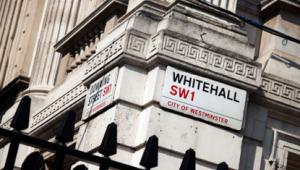In its fourth annual Whitehall Monitor report, published today, the think-tank delivered its verdict on central government’s financial performance, political leadership, civil service capability and transparency.
It found there are now 385,000 civil servants working in government, a drop of 19% from 475,000 in 2010. This meant government was attempting to prepare for Brexit with the smallest civil service in 70 years.
All but four departments have seen staff numbers fall between 2010 and 2016. Moreover, the departments likely to face the stiffest challenges around Brexit are some of those that have suffered the most substantial cuts to budget and workforce. In particular, the Department of Food and Rural Affairs has estimated 80% of its work is ‘framed’ by EU legislation, while its staff numbers have reduced by a third, and its budget by one fifth.
Day-to-day spending budgets have fallen in 11 out of 17 government departments, the report found, with some experiencing particularly sharp drops. For example, the Department for Communities and Local Government’s budget plummeted by 50% between 2011/12 and 2015/16.
Also, departmental objectives remain too numerous and too diffuse, despite various moves to improve the situation, the think-tank said. For example, half of all departments have at least 50 priorities.
The Single Departmental Plans, in particular, were designed to bundle up efficiency, spending and activity targets in a single plan. However, the SDPs “gave no sense of priority,” and appear to contain “shoe-horned in” manifesto pledges. Under this system, the government “appears to have gone backwards” in how it measures its performance, the IfG said.
Moreover, the government is “nowhere near” to achieving the target to reduce its workload by 30% proposed by civil service chief executive John Manzoni in November last year. However, the report noted the results of a recent Civil Service People Survey that indicated employee engagement had increased in every department apart from the Department of Health.
Despite the challenging workload, the IfG said that most of Whitehall was performing “reasonably well”, with the business of government continuing despite staff and budget cuts. However, it was not yet clear what impact these cuts had had on the public services for which the departments are responsible, such as the prison service or the social care system – which would be addressed in a forthcoming IfG report.
Finally, the think-tank expressed some concerns that government was becoming less open. For example, departments withheld information in full in response to 40% of Freedom of Information requests by mid-2016, up from 25% in 2010.
Also, half of departments (51%) were late in publishing their monthly spend data between 2010-16, with the Cabinet Office falling a year behind in some areas.
Gavin Freeguard, head of data and transparency at the IfG, was critical about the way the government presented and recorded financial data: “The patchy performance on publishing some key transparency data and withholding more information in response to FoI requests raises questions about the future of openness under this government,” he said.
Meg Hillier, chair of the Public Accounts Committee, commented: “Too often we find that departments have a lack of meaningful data. Not only does this make it difficult for the taxpayer to find out what is happening but departments themselves can't always measure the effectiveness of policies.”
She concluded: “Information also needs to be provided in a meaningful way – it is not acceptable to just dump spreadsheets on the internet. Departments have a long way to go before citizens can readily access information in an easily digestible format.”




















